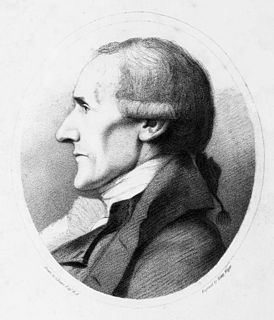A Quote by Kenneth Koch
One day the Nouns were clustered in the street.
An Adjective walked by, with her dark beauty.
The Nouns were struck, moved, changed.
The next day a Verb drove up, and created the Sentence.
Related Quotes
The worst of this sorry bunch of semi-educated losers are those who seem to glory in being irritated by nouns becoming verbs. How dense and deaf to language development do you have to be? If you don’t like nouns becoming verbs, then for heaven’s sake avoid Shakespeare who made a doing-word out of a thing-word every chance he got. He TABLED the motion and CHAIRED the meeting in which nouns were made verbs
When the copulative kai [`and'] connects two nouns of the same case, [viz. nouns (either substantive or adjective, or participles), of personal description, respecting office, dignity, affinity, or connexion, and attributes, properties, or qualities, good or ill], if the article [ho], or any of its cases, precedes the first of the said nouns or participles, and is not repeated before the second noun or participle, the latter always relates to the same person that is expressed or described by the first noun or participle: i.e. it denotes a farther description of the first-named person.
Hyacinth,” Lady Bridgerton said in a vaguely disapproving voice, “do try to speak in complete sentences.” Hyacinth looked at her mother with a surprised expression. “Biscuits. Are. Good.” She cocked her head to the side. “Noun. Verb. Adjective.” “Hyacinth.” “Noun. Verb. Adjective.” Colin said, wiping a crumb from his grinning face. “Sentence. Is. Correct.
It's funny. When we were alive we spent much of our time staring up at the cosmos and wondering what was out there. We were obsessed with the moon and whether we could one day visit it. The day we finally walked on it was celebrated worldwide as perhaps man's greatest achievement. But it was while we were there, gathering rocks from the moon's desolate landscape, that we looked up and caught a glimpse of just how incredible our own planet was. Its singular astonishing beauty. We called her Mother Earth. Because she gave birth to us, and then we sucked her dry.
What is an adjective? Nouns name the world. Verbs activate the names. Adjectives come from somewhere else. The word adjective (epitheton in Greek) is itself an adjective meaning 'placed on top', 'added', 'appended', 'foreign'. Adjectives seem fairly innocent additions, but look again. These small imported mechanisms are in charge of attaching everything in the world to its place in particularity. They are the latches of being.
There's nothing wrong with possessions; it's just that they have value to us only when we use them, engage them, and enjoy them. They're nouns that mean something only in conjunction with verbs. That's why wealth is so dangerous: if you're not careful you can easily end up with a garage full of nouns.
And speaking of on board, she'd moved into John's room properly. In his closet, her leathers and her muscles shirts were hanging next to his, and their shitkickers were lined up together, and all her knives and her guns and her little toys were now locked up in his fire proof cabinet. Their ammo was even stacked together. How frickin' romantic.
Observations,” he says. “Four imperial Unseelie guards were the only commonality I was able to isolate endemic to both scenes.” They’d been standing, armed, at the dock doors, overseeing the delivery. He gives me a sidewise look. “Wow. That was, like, a whole sentence. With nouns and verbs and connective tissue. Endemic. Fancy word.
You remember when you were maybe five years old and you went out in the morning and you looked at the day - and it was a very, very beautiful day.
You looked at flowers and they were very beautiful flowers.
Twenty-five years later, you get up in the morning,
you take a look at the flowers - they are wilted.
The day isn't a happy day.
Well, what's changed?
You know they are the same flowers, it's the same world.
Something must have changed.
Well, probably it was you.
I use are provisional terms, and they usually put any proper nouns in critical distance. I'm in a tradition of people who resist naming, fixity. That means it's a tradition of people who insist on mobility, who defy proper nouns and genres and those kinds of things. When I push back against the word 'jazz' it's because I've learned that from many, many elders who think that way. I'm not just being a jerk.







































